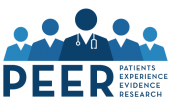Tools and Resources
Relevant, Evidence-Based, and Immediately Applicable
The ACFP endeavours to provide clinically relevant, applicable resources and tools to its members. And does so, through strong collaborations and partnerships.
Opioid Management
PEER Resources
Since 2009, the ACFP has cultivated, supported, and endorsed a joint collaboration with the University of Alberta and PEER. It has been one of the most fruitful and effective collaborations producing several practice-changing resources.
- Tools for Practice
- The Pricing Document (Price Comparison of Commonly Prescribed Drugs Guide)
- The Highs and Lows of Medical Cannabis
- C-TOP Tool (Comparing Treatment Options for Pain) – Pain Calculator
- Prevention and Management of Cardiovascular Disease Risk in Primary Care
Other Resources
- CFPC’s Best Advice Guide: Advanced and Meaningful Use of EMRs
- Osteoarthritis (OA) Tool
- Optimized Prescribing With Seniors (OPS)
- CFPC’s Launches Poverty Tool for Primary Care Providers; download Poverty Tool for Alberta
- Prevention in Hand
- Alberta Health Services (AHS) Physician Resources
- CMA Referral and Consultation Process Toolbox
- CFPC’s Medical Marijuana Position Statement
- CFPC Committee on Ethics Issues Handbook – Teaching and Practising Ethics in Family Medicine
- SIMARD MD u2013 Screening for Identification of Cognitively Impaired Drivers
- Guide to Panel Identification
For Physicians – Helpful Links
- CFPC u2013 College of Family Physicians of Canada
- CFPC’s Canadian Family Physician magazine
- CFPC u2013 College of Family Physicians of Canada Resources
- AMA u2013 Alberta Medical Association
- Canadian Institute for Health Information
- CMA u2013 Canadian Medical Association
- CPSA u2013 College of Physicians and Surgeons of Alberta
- Primary Care Networks Program Management Office (PCN PMO)
- PCN Evolution
- RhPAP u2013 Alberta’s Rural Health Professionals Action Plan
- SRPC u2013 Society of Rural Physicians of Canada (SRPC)
- Therapeutics Education Collaboration (TEC)
- Accelerating Change Transformation Team (ACTT)
- Toward Optimized Practice (TOP) YouTube Channel
- University of Alberta Family Medicine
- University of Calgary Family Medicine
- Eating Disorder Support Network of Alberta (EDSNA)
- Mental Health Commission
- Housing Connections
For Patients
- Looking for a family doctor
- Alberta Health Link
- My Health Alberta is your personal health portal
- My Health Alberta – Palliative and End of Life Care
- Prevention in Hand
- Healthy Parents, Healthy Children
- Alberta Health and Wellness
- Eating Disorder Support Network of Alberta (EDSNA)
- Alberta Health – Primary Health Care
- Alberta’s Primary Care Networks
- Primary Care Networks Program Management Office
- 23 and 1/2 Hours Visual Lecture
